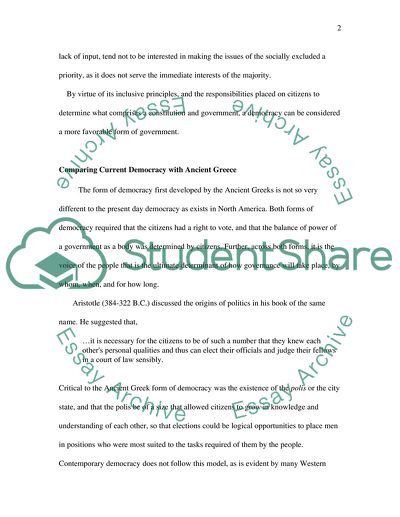Cite this document
(“What is Democracy Essay Example | Topics and Well Written Essays - 1250 words”, n.d.)
Retrieved from https://studentshare.org/politics/1538895-what-is-democracy
Retrieved from https://studentshare.org/politics/1538895-what-is-democracy
(What Is Democracy Essay Example | Topics and Well Written Essays - 1250 Words)
https://studentshare.org/politics/1538895-what-is-democracy.
https://studentshare.org/politics/1538895-what-is-democracy.
“What Is Democracy Essay Example | Topics and Well Written Essays - 1250 Words”, n.d. https://studentshare.org/politics/1538895-what-is-democracy.


